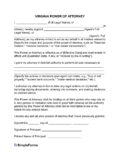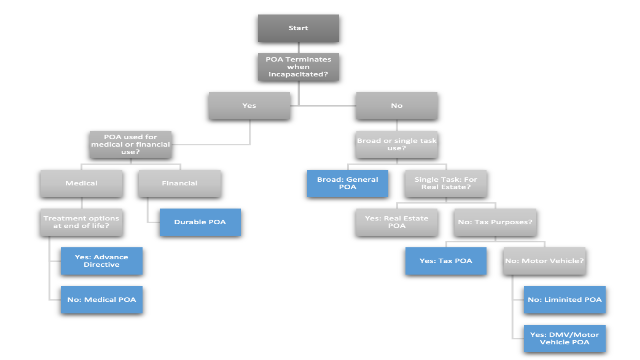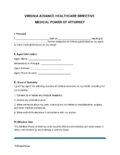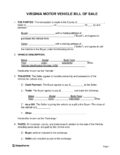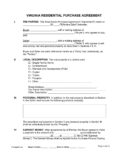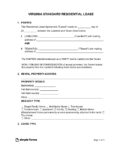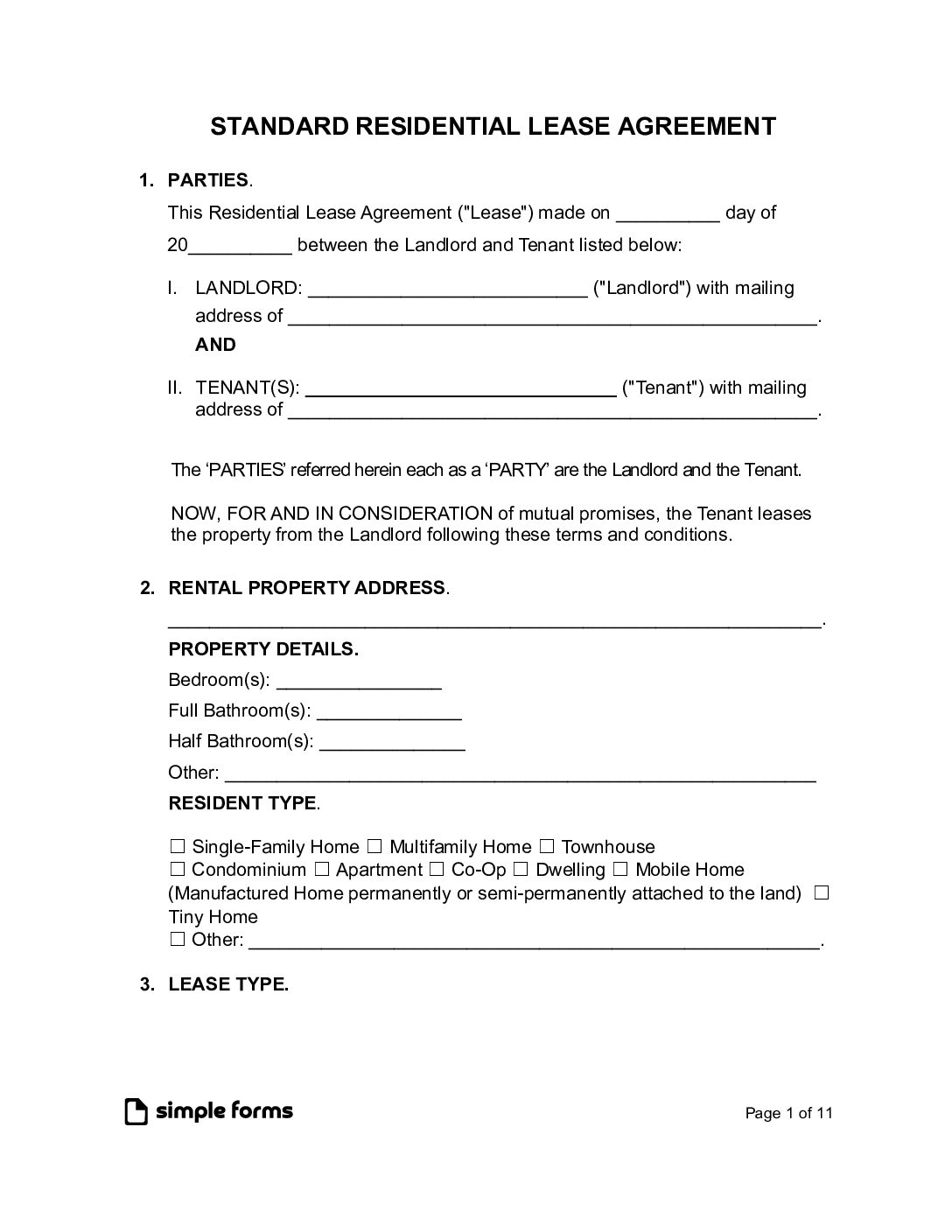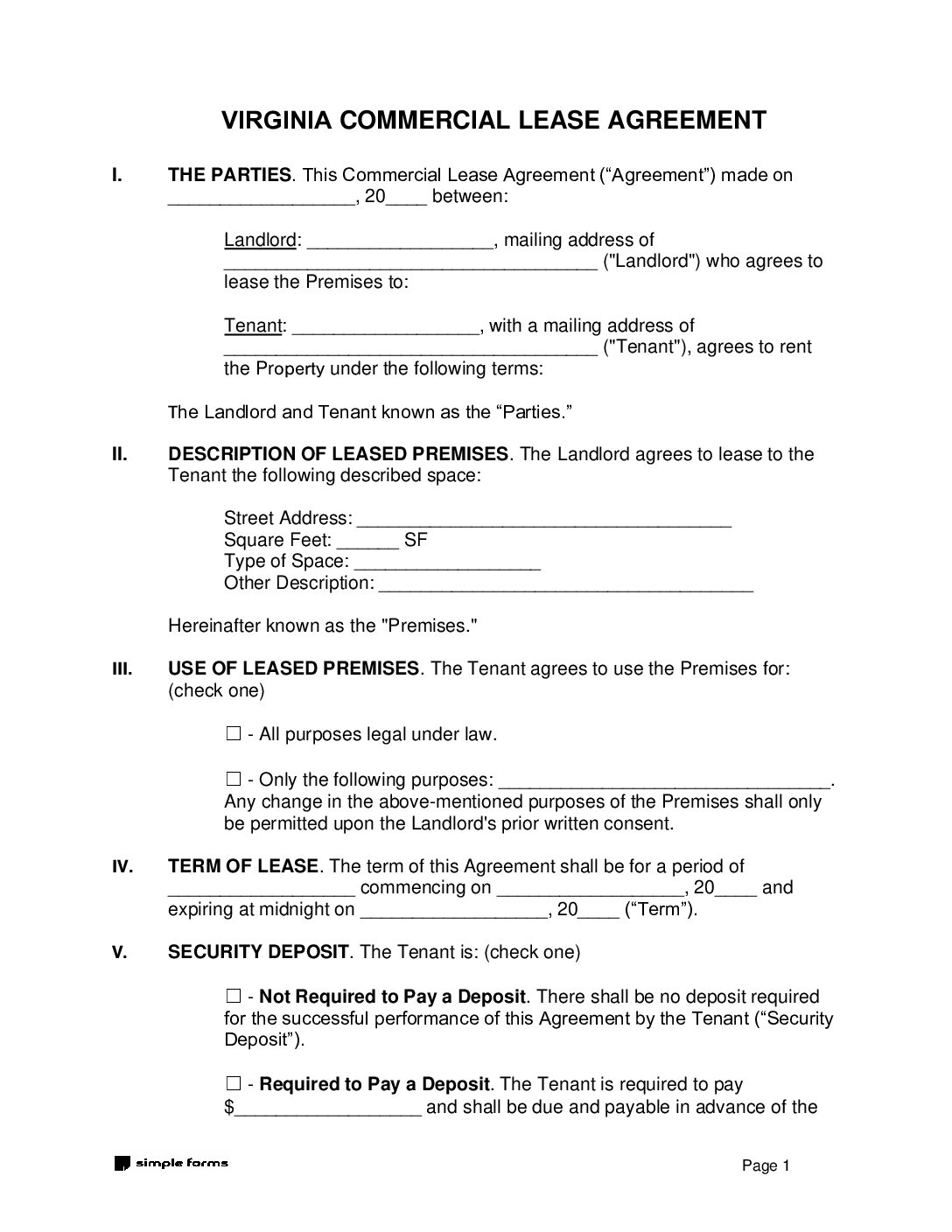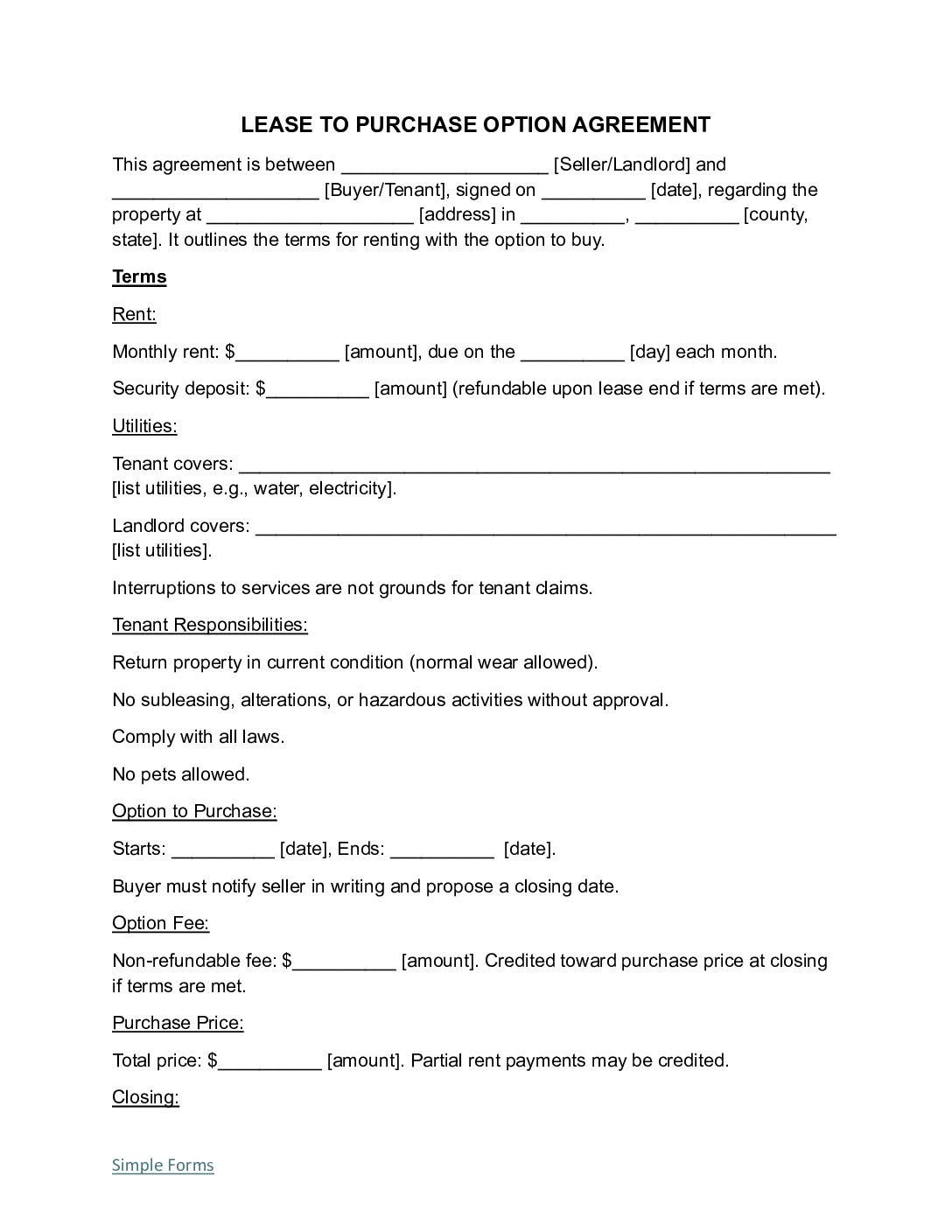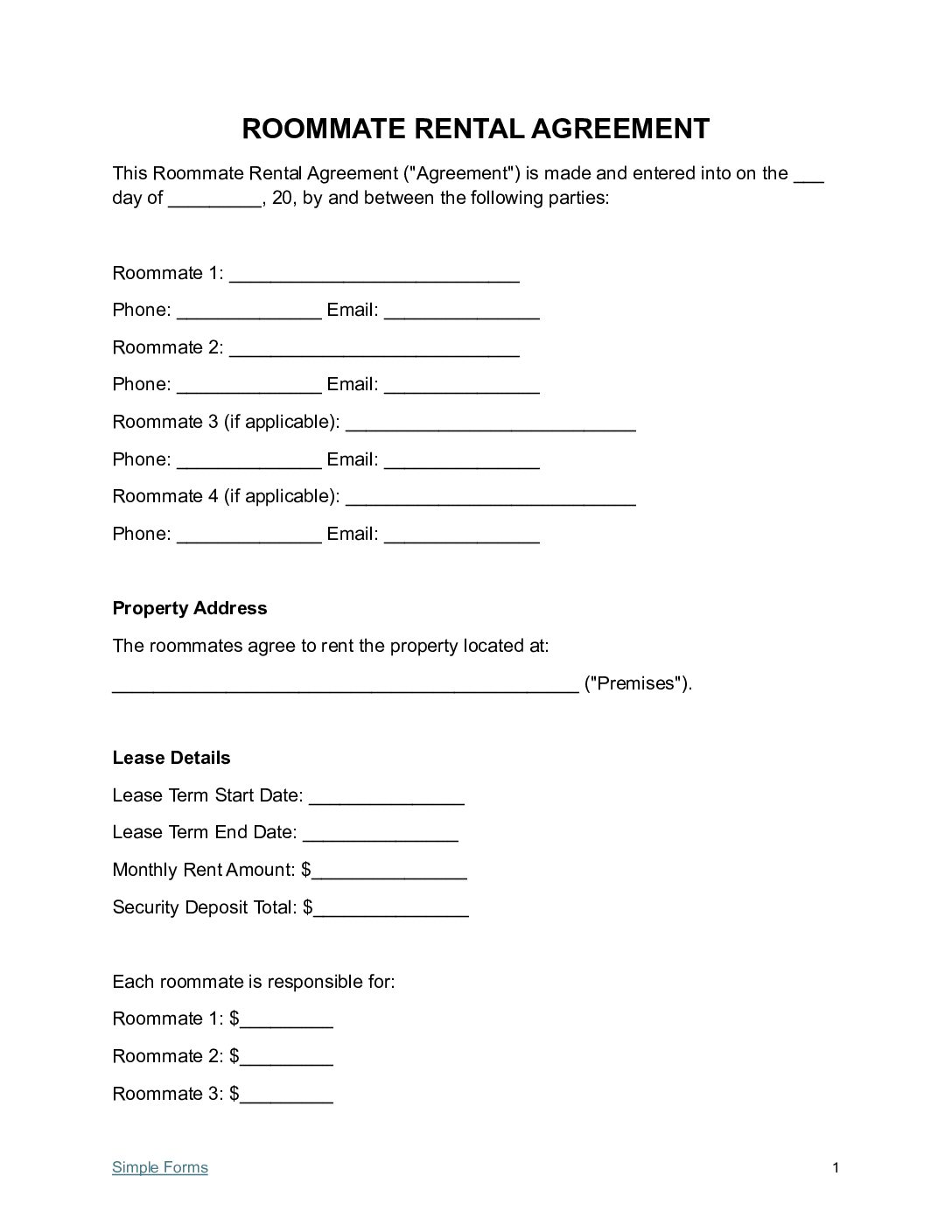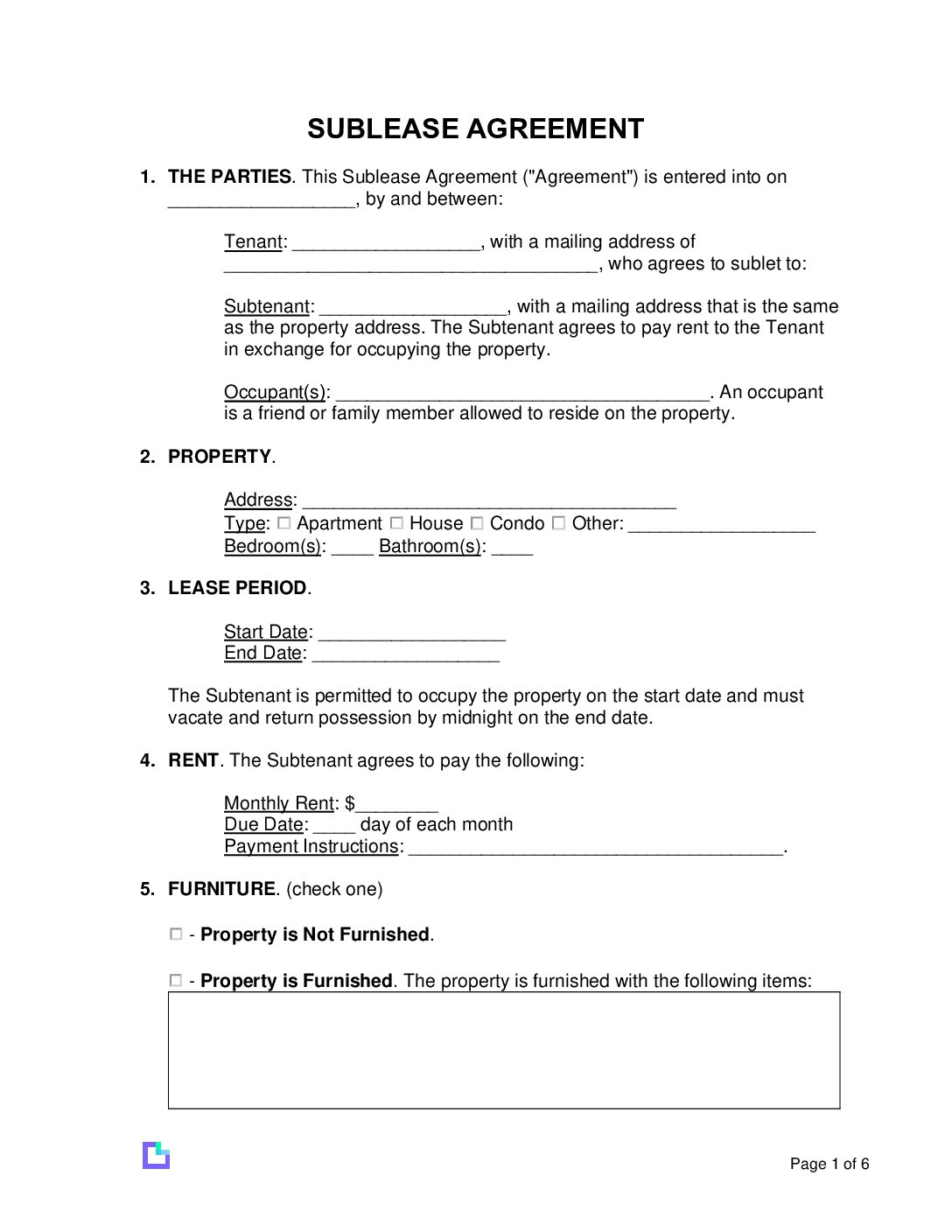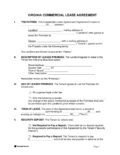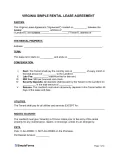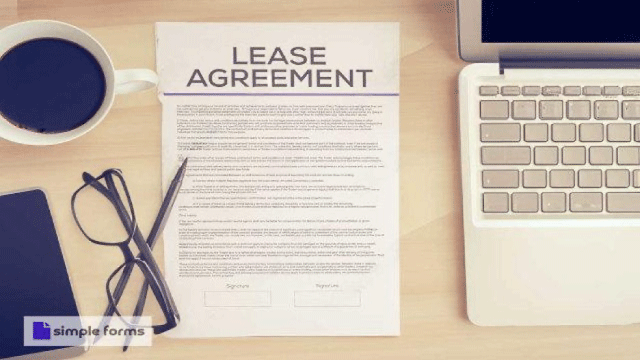Virginia
A Virginia durable power of attorney form allows a person (the “principal”) to appoint a chosen individual (the “agent”) to manage their financial matters.
Signing Requirement ✍️
The Principal must sign the POA document in front of a public notary.
Source: § 64.2-1603
What is the Definition of “Power of Attorney”?
Definition by the Uniform Power of Attorney Act:
“A “Power of attorney” is a document that gives an agent the authority to act on behalf of the principal.”
Source: § 102(7)
Power of Attorney Flow Chart 📈
Why use a Power of Attorney POA?
- Plan for the future by using a reliable Power of Attorney form template. You can download the PDF or Word document for free to provide peace of mind for yourself and your loved ones.
- This form covers decisions made on your behalf, estate planning, real estate, the agent or attorney in fact, types of powers of attorney (including durable, limited, and springing), family members, care power of attorney, bank accounts, health care power, and more.
- Use this form to grant power to act on your behalf in financial and real estate matters. It’s essential for ensuring that your wishes are carried out in the future.
Virginia Statutory POA Form
Statutory Form – § 64.2-1601
Law Alert ⚖️
Virginia POA Laws – Uniform Power of Attorney Act – Chapter 16
Virginia PDF Power of Attorney Form: Preview Example
PDF Version: Template Sample
https://simpleforms.com/wp-content/uploads/2024/06/virginia-durable-power-of-attorney.pdf
| ← Previous |
Form Options
Signing Requirements
The AD form must be signed in front of two witnesses in Virginia.
Source: § 54.1-2983
Advance Health Care Directive Registry
Virginia Advance Directive Medical Power of Attorney Sample
https://simpleforms.com/wp-content/uploads/2024/08/Virginia-Advance-Healthcare-Directive.pdf
The Virginia DMV auto motor vehicle bill of sale is a record and can be used in vehicle title applications. The form includes details of both parties, description of the vehicle, and the purchase terms.
Type of Sale
Document Requirements when Registering Vehicle in Virginia
Virginia Motor Vehicle Bill of Sale: Preview PDF Template Example
Sample
https://simpleforms.com/wp-content/uploads/2024/06/Virginia-DMV-Motor-Vehicle-Bill-of-Sale-Form.pdf
Form Options By Type
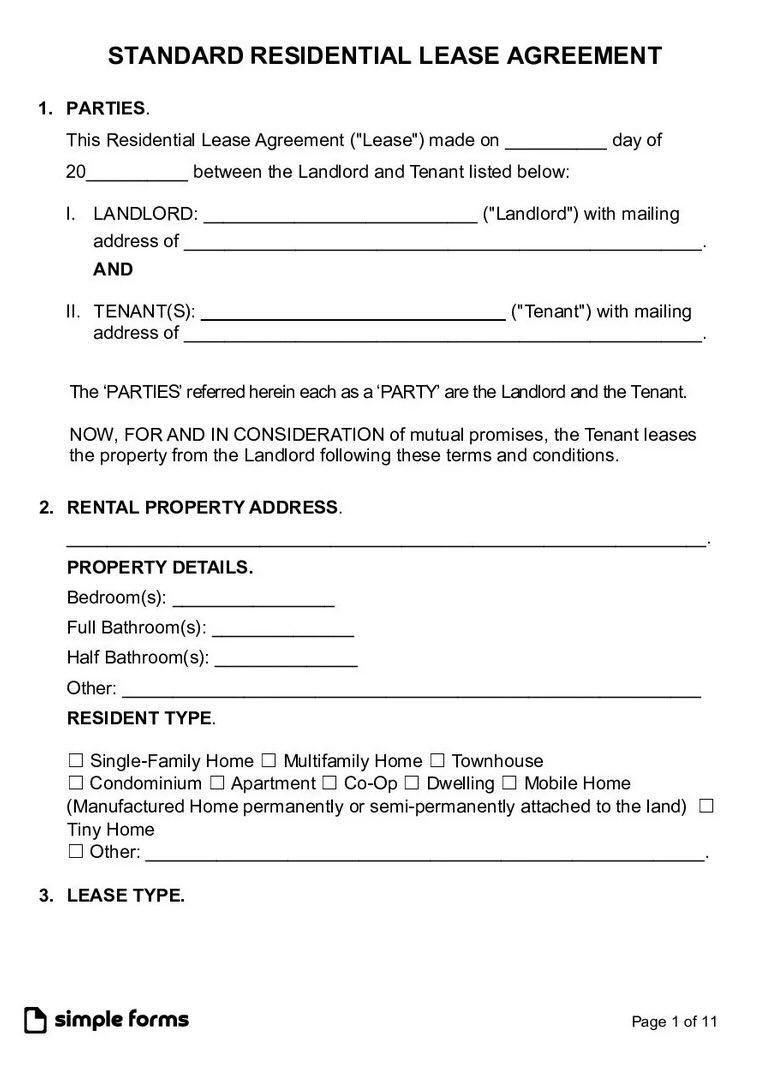 Standard Residential Lease Agreement Standard Residential Lease Agreement
|
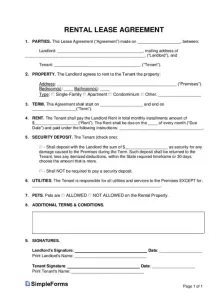 Simple (1-Page) Lease Agreement Simple (1-Page) Lease Agreement
|
When does a purchase agreement become legally binding?
The purchase and sale agreement becomes legally binding when both parties sign the contract and the buyer gets the notice that the seller has accepted the deal. The buyer can get the notice in-person, by phone, and/or email.
Virginia Residential Purchase and Sale Agreement Sample
https://simpleforms.com/wp-content/uploads/2024/05/Virginia-Residential-Real-Estate-Purchase-Agreement-1.pdf
By Type (6)
| Residential Lease Agreement – Standard 1-year lease term. Download: PDF | Word (.docx) |
|
| Commercial Lease Agreement – Used for retail spaces, office buildings, warehouses, and industrial facilities. Download: PDF |
|
| Month-to-Month Lease Agreement – Tenancy at will with renewals every 30 days. Download: PDF | Word (.docx) |
|
| Rent to Own Lease Agreement – A lease that includes an option for the tenant to purchase the property. Download: PDF | Word (.docx) |
|
| Roommate Lease Agreement – Shared living arrangements. A binding contract outlining responsibilities and agreements between co-tenants. Download: PDF | Word (.docx) |
|
| Sublease Agreement – Used to Sublet unit with landlords approval. Download: PDF | Word (.docx) |
What the Virginia Residential Lease Agreement Form covers?
The Virginia Residential Lease Agreement Form includes the following:
- Required Disclosure Forms
- Security Deposit Regulations
- Rent Due Dates and Late Fees
- Landlord’s Access to the Property
- Abandonment
- Virginia Eviction Laws without a Lease Agreement
Required Disclosure Forms
- Statement of Tenant Rights and Responsibilities – Landlords must provide tenants with a copy of the lease and a tenant rights statement within 10 days of the lease start date.
- Defective Drywall – Landlords must disclose any known defective drywall to the tenant.
- Lead-Based Paint Disclosure – If the rental property was built before 1978 landlords must inform tenants of lead-based paint health hazards and provide an EPA pamphlet.
- Methamphetamine Use Disclosure (conditional) – Landlords must inform tenants if the rental property was used to produce methamphetamine.
- Military Zone Disclosure (conditional) – If the rental property is near a military air installation in a noise or accident zone.
- Move-In Inspection – Landlords must provide a written list of damages within five (5) days of the lease start date.
- Mold Disclosure – Landlords must disclose any mold found during the move-in inspection. Tenants can report mold within 5 days and the landlord must fix it within 5 business days.
- Electronic Notices (conditional) – If landlords send notices electronically, this must be stated in the lease agreement. The Tenants can choose paper notices if preferred.
- Utility Billing (conditional) – Must disclose if the landlord uses sub-metering or ratio billing for utilities.
Security Deposit Requirements
- Maximum – The maximum amount Landlords can request from Tenants equals two (2) months rent.
- Returns – Landlord must be return all security deposits to the Tenant within 45 days of the lease end date.
Due Dates / Late Rent Fees
- Grace Period – Five (5) day grace period.
- Late Fees – 10% of the monthly rent.
- NSF Fee – $50 per bounced check.
Landlord’s Access to the Rental Property
Abandonment
- Absence – If the Tenant is going to be gone for more than seven (7) days then the landlord needs to know ahead of time.
- Breaking the Lease – The Tenant can end the lease without penalty if the the following happen:
- The Landlord doesn’t stick to the agreement
- The Tenant needs to move for military service
- If there’s any violence/abuse on the rental property
- Utility Shutoff – If utilities aren’t kept up, the landlord can give a 30-day notice and the Tenant will have 21 days to fix it or move out.
- Unclaimed Property – The landlord can get rid of any stuff the tenant leaves behind 24-hours after the lease ends.
Virginia Eviction Laws without a Lease Agreement
Sources
- § 55.1-1204(H)
- § 55.1-1218(A)
- § 55.1-708
- § 55.1-1217(A)
- § 55.1-1214(A)
- § 55.1-1215
- § 55.1-1202(A)
- § 55.1-1212(B)
- § 55.1-1226(A)
- § 55.1-1204(C)(4)
- § 55.1-1245(F)
- § 55.1-1204(E)
- § 8.01-27.1(B)
- § 55.1-1244.1(C)
- § 55.1-1229(4)
- § 55.1-1249
- § 55.1-1234
- § 55.1-1235(A)
- § 55.1-1236(A)
- § 55.1-1245(A)
- § 55.1-1254
Form Options By Type
 Standard Residential Lease Agreement Standard Residential Lease Agreement
Download: PDF |
 Simple (1-Page) Lease Agreement Simple (1-Page) Lease Agreement
Download: PDF |
When Does a Commercial Lease Agreement Become Legally Binding?
The Commercial Lease Agreement becomes legally binding when both parties sign the contract and the buyer gets the notice that the seller has accepted the deal. The buyer can get the notice in-person, by phone, and/or email.
Virginia Standard Commercial Lease Sample
https://simpleforms.com/wp-content/uploads/2024/05/Virginia-Standard-Commercial-Lease-Agreement-1.pdf
An Virginia lease agreement is used when renting rental property and it is a contract between the Landlord and Tenants in exchange for monthly rent payments.
Form Options By Type
 Standard Residential Lease Agreement Standard Residential Lease Agreement
|
 Simple (1-Page) Lease Agreement Simple (1-Page) Lease Agreement
|
Most Recent US Home Facts
- Population (2023): 334,914,895
- Median Households (2022): 125,736,353
- Median Household Income (2022): $75,149
- Owner-occupied Households (2022): 64.8%
Source: U.S. Census Bureau
What to Include in the Form?
Required Disclosures
- Statement of Tenant Rights and Responsibilities – Landlords must provide tenants with a copy of the lease and a tenant rights statement within 10 days of the lease start date.
- Defective Drywall – Landlords must disclose any known defective drywall to the tenant.
- Lead-Based Paint Disclosure – If the rental property was built before 1978 landlords must inform tenants of lead-based paint health hazards and provide an EPA pamphlet.
- Methamphetamine Use Disclosure (conditional) – Landlords must inform tenants if the rental property was used to produce methamphetamine.
- Military Zone Disclosure (conditional) – If the rental property is near a military air installation in a noise or accident zone.
- Move-In Inspection – Landlords must provide a written list of damages within five (5) days of the lease start date.
- Mold Disclosure – Landlords must disclose any mold found during the move-in inspection. Tenants can report mold within 5 days and the landlord must fix it within 5 business days.
- Electronic Notices (conditional) – If landlords send notices electronically, this must be stated in the lease agreement. The Tenants can choose paper notices if preferred.
- Utility Billing (conditional) – Must disclose if the landlord uses sub-metering or ratio billing for utilities.
Source: § 55.1-1214(A), § 55.1-1212(B)
Security Deposits
Maximum – The maximum amount Landlords can request from Tenants equals two (2) months rent.
Returns – Landlord must be return all security deposits to the Tenant within 45 days of the lease end date.
Source: § 55.1-1226(A)
Landlord Access
General Access – Landlords must provide prior notice before entering the premises as per state law of least 72 hours notice to the Tenants.
Source: § 55.1-1229(4)
Paying Rent
Grace Period – Five (5) day grace period.
Late Fees – 10% of the monthly rent.
NSF Fee – $50 per bounced check.
Source: § 8.01-27.1(B)
Virginia 1-Page Lease Agreement Example
Sample
https://simpleforms.com/wp-content/uploads/2024/04/Virginia-Simple-1-Page-Residential-Lease-Agreement.pdf

